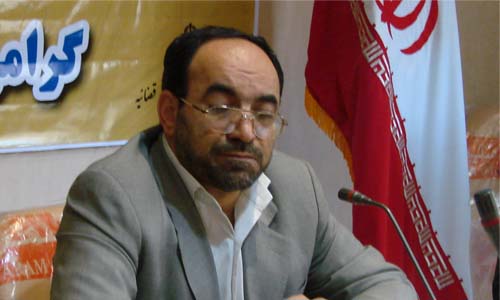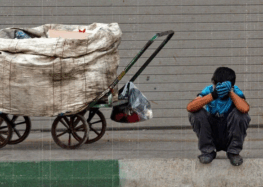Four Fingers of Two Individuals Convicted of Theft Amputated in Public in Iran

Head of the Yazd Province Judiciary Gholamhossein Heydari
Four fingers of two individuals convicted of theft were amputated in public earlier this week in Yazd Province in Iran. “This punishment was carried out publicly in order to teach a lesson to criminals,” Head of the Yazd Province Judiciary Gholamhossein Heydari said at a Crime and Social Ills Prevention Conference, the semi-official Iranian Student’s News Agency (ISNA) reported on November 13.
The use of amputation in Iran as a punishment for theft is not new, though many in the international community had hoped that the revised Islamic Penal Code, ratified in 2012, would remove the practice. While the new Penal Code did place certain restrictions on juvenile executions, it retained the practice of amputation as a legal form of punishment under domestic law.
According to the Islamic Penal Code, “The punishment for theft is as follows: [under article 201] On the first occasion amputation of the full length of four fingers of the right hand of the thief in such a manner that the thumb and palm of the hand remain. On the second occasion amputation of the left foot in such a manner that half of the sole and part of the place of anointing [during ablution] remain. On the third occasion [the punishment] is life imprisonment. On the fourth occasion [the punishment] is execution even [Ed. if] [the fourth] theft was committed in prison.”
While amputation, flogging, and stoning to death are all legal punishments according to Iran’s Islamic Penal Code, they are considered torture, cruel and unusual punishment, and illegal under international human rights law.
The UN General Assembly is currently considering a resolution on the situation of human rights in the Islamic Republic of Iran which includes strong language describing the use of amputations as “Torture and cruel, inhuman or degrading treatment or punishment.” Furthermore, the resolution “Calls upon the Government of the Islamic Republic of Iran . . . To eliminate, in law and in practice, amputations, flogging, blinding and other forms of torture and other cruel, inhuman or degrading treatment or punishment. . . .”
In his September 2012 report, the UN Special Rapporteur on human rights in Iran wrote that he “joins the Secretary-General in his concern about the frequent use of torture, amputations and flogging. . . .”
According to an October 2010 report published by ISNA, Mahmoud Zoghi, the Prosecutor in the northeastern city of Mashhad, announced the amputation of the hand of a thief and said such sentences would be more widely applied, reflecting a “more rigorous approach.” Some hand amputations have been carried out in the presence of others charged with robbery, “so they could learn a lesson from it,” Zoghi said.
Addressing criticism of the practice in 2010, the head of the Iranian Judiciary’s Human Rights Council Mohammad Javad Larijani told the United Nations Human Rights Council that Iran does not consider such punishments to be torture and that they are culturally justified.
“There is nothing about Iranian culture that sanctions such cruelty,” responded Hadi Ghaemi, spokesperson for the International Campaign for Human Rights in Iran.






